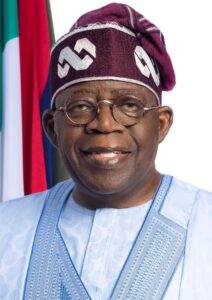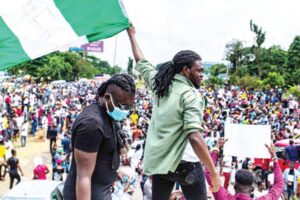
Adeleke’s victory, not blood-stained
By Goke Awoyemi
When the people of Osun State, South-West Nigeria, trooped out enthusiastically to elect who governs them for the next four years on 16th July, 2022, they had two candidates in mind. These are Governor Isiaka Adegboyega Oyetola and Senator Nurudeen Ademola Adeleke, as the other contestants as INEC results has shown were mere appendages. Immediately Senator Ademola Adeleke was announced as the winner, President Muhammadu Buhari from the rulling All Progressive Congress congratulated him. The mere fact that no single life was reportedly lost during the exercise has further strengthened the credibility of the poll that Adeleke’s Victory was not blood-stained.
Except for Ismail Omipidan, the Chief press secretary to Governor Adegboyega Isiaka Oyetola’s article, published in the Nigerian Tribune, one would have reserved his comment on the Osun matter since it has been subjected to judicial process for determination. Omipidan’s article is seen as an attempt to use the paraphernalia of office to whip up sentiment, so that the reading public could sympathise with his principal and influence the decision of the tribunal.
However, the civil society organization, YIAGA AFRICA which Omipidan wanted to use to whip up sentiment has described “as lies efforts to twist its report on the outcome of the governorship election in Ekiti and Osun States.” The organization in a report published by Saturday Punch on September 17, 2022 stated this while reacting to publication credited to Ismail Omipidan claiming that the recently launched YIAGA AFRICA election result analysis dashboard report for the two elections in Osun and Ekiti confirmed that the governors who contested on the platform of All progressive congress won the elections. YIAGA AFRICA, in the statement issued by its Executive Director, Samson Idodo, said “Omipidan was only twisting the fact.”
Omipidan should think of going back to The Sun newspaper, a reputable platform where he was an Assistant Editor before his engagement. He should take a cue from elderly people like us, who has not been on any newspaper payroll since 2015, when INSIDER magazine where I was the South-West Bureau Chief went bankrupt. It was in the course of this adventure that I encountered Femi Babafemi, former Saturday Sun Editor who now works as the Public Affairs Director, Nigeria Drug Law and Enforcement Agency (NDLEA), who gave me a brief on specific target among the Yorubas who has national and state voices for interview that could adorn the front page of the newspaper. Senator Iyiola Omisore, who has not officially joined the rank of All Progresive Congress from the Social Democratic Party, but enthroned governor Oyetola in 2018 in a run-off election was among top Yoruba leaders I was commissioned to interview. But on sighting me when I entered the inner-most part of his living room, inspite of the fact that I told his closest political confidant, shouted at me with anger and said “Kilodegan? Moni mi o fe press interview” meaning which, What is the problem? I said I don’t want any press interview. I did not shake, but was motionless for about 3 minutes, perhaps because his late father Oba Olajide Omisore (may his soul rest in peace), who was gesticulating at me was there with him. He (the late Oba), must have remembered when my late father (who told me that himself and the late Oba were contemporaries in the civil service before they retired) and myself met with the Oba at his Orilonise residence, Moore area, Ile-Ife. I from there placed a call to Femi Babafemi to talk to Omisore himself, But he advised me to leave him if he doesn’t want to talk. Since then, I always have mix feelings before going to Senator Omisore’s house without invitation. These are some of the ugly encounters in this thankless job even if you meant no harm. Omipidan should not be afraid of going back to his desk instead of engaging the public in trivialities.
The journalistic instinct in me invoked my monitoring the poll in 3 polling boots namely, Gidiogbo, Ogbo-Oya (the ancestral home of Senator IyiolaOmisore, the National Secretary, APC) and Lujumo all situated at both Ife East and Central Local government arears. In all the 3 polling units, the polls were peaceful, free and devoid of any form of intimidation, except at Gidiogbo where a young man came shouting forcefully at the people on the queue that they must vote for a particular party in the presence of security agents. But because he was alone devoid of gangsters, he quickly left and his impact was not felt by the people waiting to cast their votes.
Governor Isiaka Adegboyega Oyetola lost the Osun governorship poll because of the lack-lustre performance of the President Buhari led Federal government on security, economy (where the dollar keeps rising every day and the price of commodities keeps soaring, with a loaf of family bread inches to N1,000, pushing higher the number of suicide especially among youths to commit suicide), infrastructural decay, (a road of one major street in Ile-Ife which the government started four years ago has not gotten half way till date), and the whole gamut of human endeavour, which prompted media guru Bashorun Dele Momodu to reason that APC is leading Nigeria to Golgotha, and except Nigerians want to get crucified, APC should not be the choice.
Sentor Ademola Adeleke won with heavy reliance on his late brother’s solid political structure, late Isiaka Adetunji Adeleke who was the third Republic governor, and the first democratically elected governor in Osun and a serving Senator until he died in April 23rd, 2017. One would have expected governor Adegboyega Oyetola to congratulate him for defeating him twice, first before the run-off in 2018 and second on July 16th, 2022. In the America Presidential system which we copy from, when they try the Republicans for one or two terms, they switch over to the Democrats.
Goke Awoyemi, media consultant, sent this piece from Ile-Ife, Osun State
08039506843 (SMS please)



